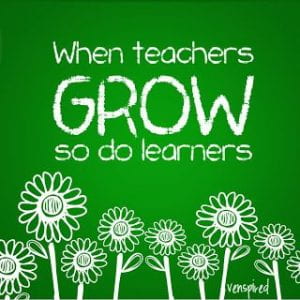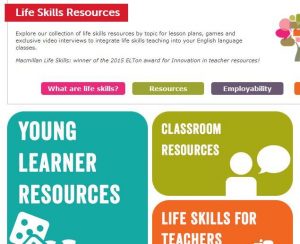Observations
Now that we’re settled into the first term, it’s time to think about first term observations. At Active, we hope that all our observations are seen as what Jim Scrivener identifies as developmental rather than appraisal observations. We have two main objectives for observing: partly it’s an opportunity for the coordinators to get to see the learners in action and also we can determine how to help you develop as an individual. For this reason, the choice of which lesson is observed is a two-way process – you may have identified a group which you are having an issue with in a particular area (such as use of L1 or level of challenge) or when chatting to a coordinator, they may suggest an observation of the group in question.
In terms of the process, once you have decided which group will be observed, you’ll have a ten-minute chat with the coordinator observing. This is the time to have a brief chat through your plan and determine what aspect of the lesson you would especially like us to focus on (e.g. clarity of instructions, Marta’s engagement in the lesson, etc). You don’t need to provide us with a stage-by-stage lesson plan, but it will be good to identify your aims and materials for the lesson.
Following the observation, you’ll again get together to reflect on the class.
Also, just to add that we all know what it’s like to have a “foreign body” in the room and learners can be incredibly unpredictable during observations – the quiet ones suddenly start showing off and playing up whilst the more disruptive learners can suddenly become little angels for the hour. This can sometimes throw you a little and so rest assured that if you talk to us about an issue (such as learners getting out of their seats every other minute) which isn’t apparent during the observation, we will still aim to provide you with support and ideas on that particular issue.
If you’re interested in the process of observation and what the TEFL world has to say on the subject, here are some links:
What is best practice for observing teachers? – #ELTChat summary
10 things I don’t think I really want to hear in feedback sessions – quite an amusing rant from Michael Griffin
Tony Gurr has a series of posts on Classroom Observation
Warming Up
Well, we’re looking forward to the start of the new term here and those all-important first classes. It´s a great opportunity to find out more about your learners, their interests and backgrounds and also to share some information about yourself – it builds trust. I don’t know about you, but I still get nervous about facing a new group for the first time!
Here’s a link with some great ideas for the first day:
First Day Activities with a Focus
Wondering how to a tackle planning a lesson for that all-important first day with a new class? Claire Egmore and Kathryn Davies, former teachers and now editors at Cambridge University Press, are here to help with their top tips on planning a successful first lesson.
Also, if you check out the First Day Activities category on the right, you’ll find more top tips and tasks.
Development in Action
Getting together three times a term to share ideas and experiences is one of the great things about working in an academy that takes professional development seriously. A big part of development is action, feedback, reflection and then new action. I love that through the process of peer observation I´ve had the opportunity to put this into effect.
Talking to our teachers during appraisals what has come out is that peer observations has been both a rewarding and reassuring experience. Teachers do things differently. Teaching styles vary. It´s okay to be serious and quiet. It´s okay to get close in with your students. Getting fresh insights into our own practice- and keeping feedback focused and constructive- helps to professionalize what we do in what can sometimes be perceived as an a isolated environment.
Here are some of the practical tips and activities we shared in groups last term. Don´t forget to ask the person if you wanted to know more!
Peer Observations
PEER OBSERVATION LIST March 2019
During the second term, we have a series of peer observations. At Active, we believe these are a very worthwhile professional development opportunity and here are some of the reasons why:
- We all have a professional curiousity to see how other people work and to compare and contrast our class to another. By doing so we uncover a number of similarities and differences within our environment
- It’s a great moment to borrow and use ideas from a colleague – it serves as an opportunity to pick up new ideas, as a reminder perhaps of activities we’ve done in the past and since forgotten and also to enforce that what we’re doing in our own classes is ‘a good thing’
- It’s a time when we spread best practice – using the feedback session to compare how we do things and provide constructive comments on other ways of working
- The democratisation of observation, by which we mean that observation should not be seen as a top-down, evaluative tool in which a teacher is ‘judged’ on their performance
- It provides a break from routine
- It raises your awareness of your peers
- Perhaps more specifically to Active where we work in a number of different environments, it gives teachers the opportunity to see how different styles of teaching work (e.g. bilingual classes, speaking classes)
- It’s a wonderful moment to reflect on your own teaching – after an observed lesson, we’re likely to be more reflective and analytical of the class than we would be on a daily basis; but it also allows a moment to reflect on the bigger picture – perhaps not just thinking about that one lesson, but other lessons with that group, or other classes in general
Here are more ideas from Education World:
Administrators benefit from:
| * | the opportunity for reflective dialogue with and among teachers. |
| * | an increased sense of shared responsibility. |
| * | an increased focus on student achievement. |
| * | an increased trust and collegiality among staff. |
| * | participation in a professional and collaborative learning community. |
| * | a cadre of self-reliant, confident teachers who love teaching. |
| * | enriched teacher efficacy |
| * | participation in a professional and collaborative learning community. |
Teachers benefit from:
| * | an opportunity to engage in reflective dialogue about their work. |
| * | the focused classroom support. |
| * | improvement of classroom practices. |
| * | support from an “expert” (peer) who understands the daily demands of the classroom. |
| * | satisfaction with one’s work. |
| * | reduced job stress, especially for the new teacher. |
| * | a welcoming atmosphere for new teachers. |
| * | the comfort of knowing that someone is available to help, explain, and assist. |
The school benefits from:
| * | increased collaboration among teachers. |
| * | the establishment of a professional learning community. |
| * | an increased focus on student achievement. |
| * | enthusiasm for the teaching profession. |
PDTM on Exam Classes
Welcome to everything exam related! Exams are a big part of academy life these days and at Active, exam classes come in many shapes and sizes.
These include Cambridge Speaking lessons at San Felipe Neri (this year down to Lucy, Nick, Kate, Karin, Alex B and Simon B) as well as the full Four Skills exam practice that goes on at La Salle Viña (this year the preserve of Edel and Nathan).
But of course, most of our students are part of the academy-style KET, PET, FCE and CAE exam classes – which most teachers are also involved in this year- and this was the focus of the PDTM on exams on Wednesday the 14th November 2018.
Teachers had come with answers to a questionnaire we´d sent out the week before (scroll down to the bottom see it) and we dived straight into discussing attitudes, experiences and general approaches.
Something interesting that came up was how varied individual approaches were. These ranged from being very exam-based rubric-aware approaches to freer lesson designs which did deal with exam parts but focused more on general English, especially for .1 or first year exam classes. Knowing the exam handbook inside out was considered a must for everyone across the board.
In terms of tracking marks, some teachers keep very tight records of parts of exams practiced and indeed student scores, encouraging students to do so themselves in order for them to chart their progress. Other teachers prefer to limit mark-tracking to more formal testing occasions. A lively discussion ensued but all teachers agreed that what was important was to be aware of student progress over time and use this to guide their decisions in the classroom (say to spend more time on particular areas) and use it to raise awareness of weak areas in students too. Good for report writing we decided as it gives us something concrete to talk about.
We went on to cover understanding examiner mindset and the importance of embedding it in our lessons regularly; student-created content to engage our students in their own learning (people love to use and talk about stuff they´ve made) and, of course, best use of CEXTRA papers going forward. We concluded that the students would benefit more from the mock-exam experience if we forced them to self-mark using the marksheets before accepting their written work in the hope that it would eventually raise the quality of the writings handed-in. No-one wants to hand in something they know to be poor- part of the benefit of arming students with success critera in the first place. There are some signs that this approach is bearing fruit.
Kate then showed everyone the black folders again, highlighting the parts that could be of particular use in particular situations such as practice activities outside of class, the at-a -glance exam format, the error correction and self-study pages to train the students into becoming better learners. And , of course, the CEXTRA mark sheets I refer to above.
The folders were a really useful part of the session and as Keara and Alex CB said, you get given them in the first week of term and you know you are meant to use them but there is so much to take in that a lot of it goes over your head, so thanks Kate for the refresher and for reviewing such a wonderful practical work tool.
We finished off with a Show and Tell where teachers got to share their favourite practical activities in turn. My favourites? those that cultivate curiosity and team work as these lead to spontaneous communication. “Do nows” whether sentence transformations or discussion questions on the board to welcome students as they arrive in dribs and drabs and to focus that first moment (teacher´s book full of ideas for these). Student-generated content also proved very popular- Make your own gap-fills by blocking out all prepositions in a text, dictaglosses or “write an extra comprehension question” for fast finishers.
In short, individual experiences, varied approaches, different priorities. And all as valuable as the next. Thanks everyone for the fruitful morning of chat and discussion. Hopefully it left you feeling re-energized and inspired for you next exam lesson.
QUESTIONNAIRE FOR EXAM CLASSES
TEACHER-FOCUSED QUESTIONS
How do you feel about teaching exam classes?
How are they different to teaching general English classes?
What are the pros and cons of teaching exam classes?
How do you approach exam classes? Is everything in your class directed at exam practice? Should it be? Or not?
How do you prepare yourself for teaching exam classes?
STUDENT- FOCUSED QUESTIONS
How do you prepare students for teaching exam classes?
Do you keep a track of the parts of the exam you´ve covered and how many times you´ve covered them? How?
Do you keep track of the marks your students get? How?
Do you know which of your students are going to CEXTRA?
What do you do and/or your students do with the papers after they´ve done the exam?
Any other comments you´d like to add.
Planning with the Teacher´s Book- as easy as ABC
You can travel without a list of course but you will avoid a few problems if you spend a bit of time planning – not a whole week though. That would be silly. A few minutes should be enough. Pre-empting problems will bring peace of mind and when it comes to teaching, this is a major defence against burnout and work stress. Wise words from Katherine Bilsborough´s British Council article on writing lesson plans using the Teacher´s book.
January 2018- Time to try out new life skills in class?
Explore Macmillan´s collection of life skills resources by topic for lesson plans, games and exclusive video interviews to integrate life skills teaching into your English language classes. The Adults love it!







